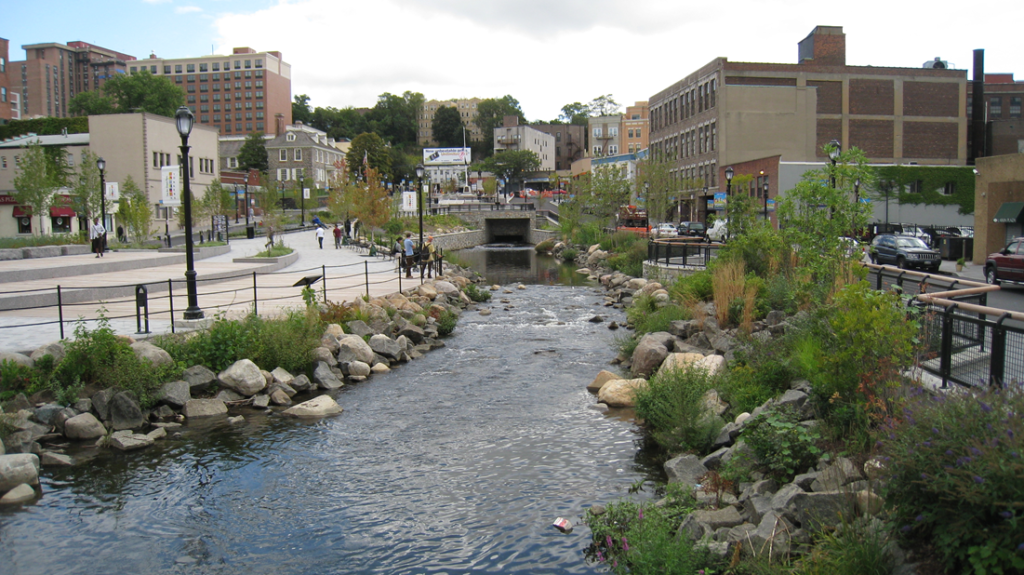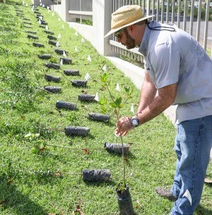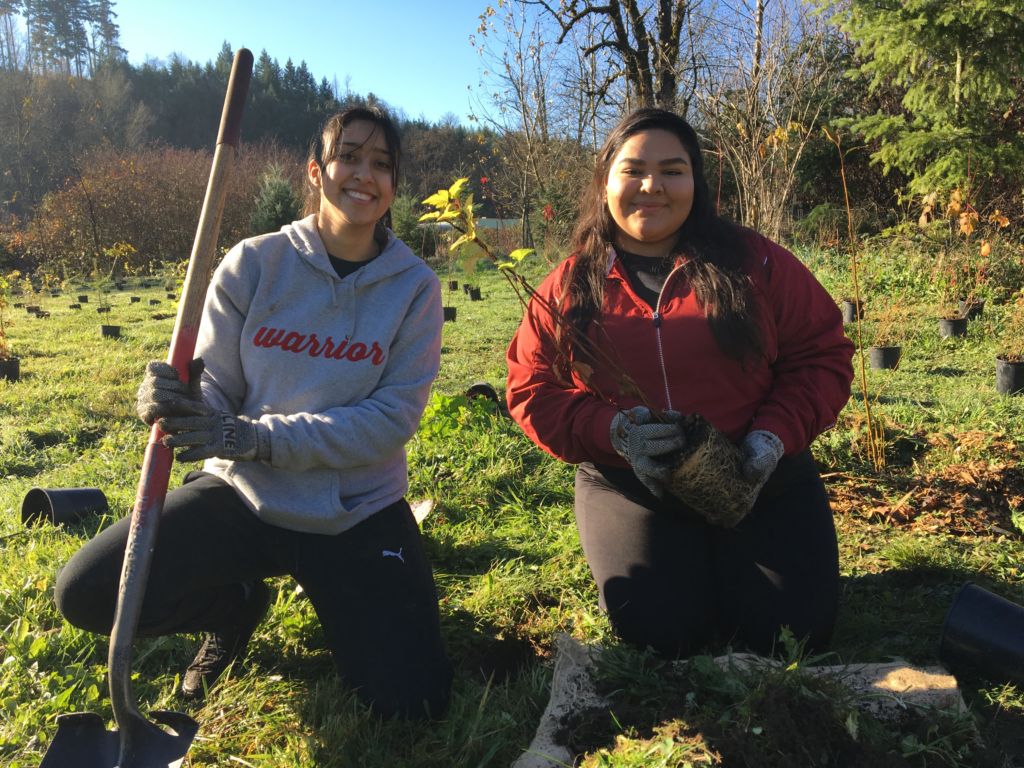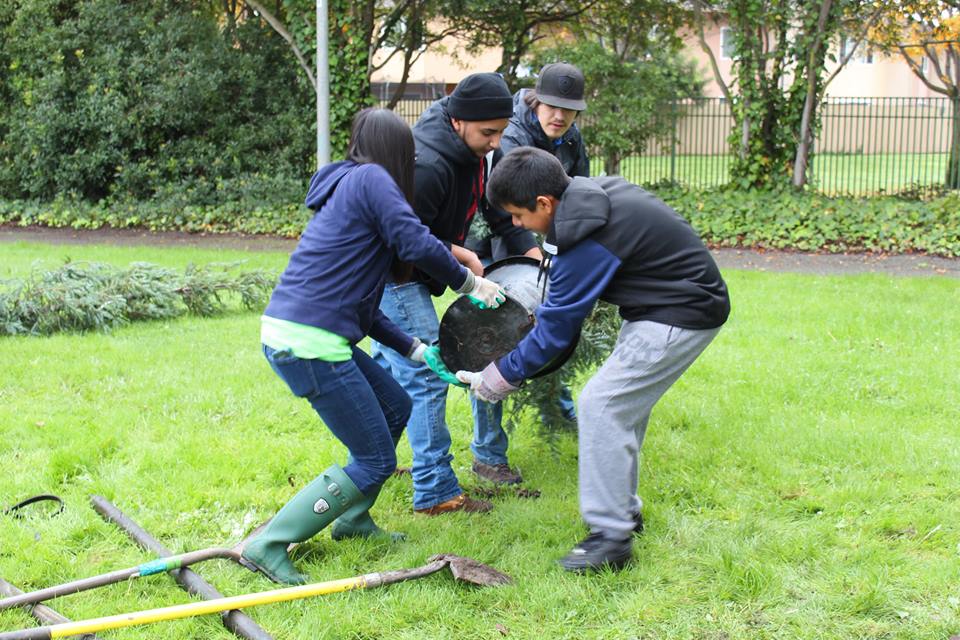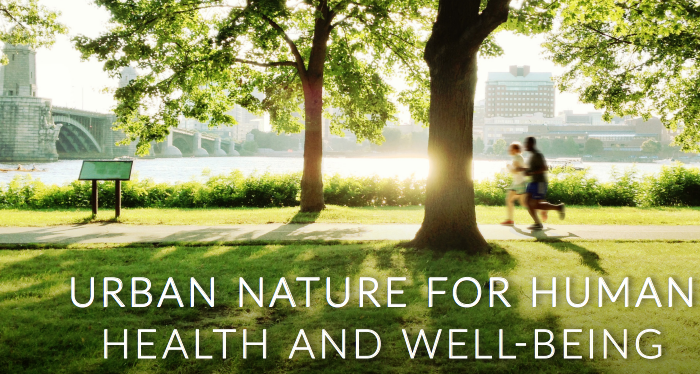urban forestry
September 22, 2021
The report provides an Urban Forest and Health Menu that compiles nature-based adaptation actions from peer-reviewed research. The menu includes nine adaptation strategies that are designed to be used […]
June 8, 2020
The Middle Rio Grande faces unique urban challenges due to regional drought and competing water uses. To address these issues, the area was designated as an Urban Waters Federal Partnership location in 2013. From large redevelopment projects to smaller, unique projects—like the Mobile Pop-Up Park —the Partnership has worked together with the community to become a partnership of ‘yes’. As Mandy Griego, former Partnership co-lead, puts it: “We are stronger together.”
December 4, 2019
Project Highlights of the Urban Waters Learning Network Read about how three Urban Waters Learning Network organizations–Groundwork Hudson Valley, The Conservation Fund, and Groundwork Richmond–are working to create more green […]
April 23, 2019
The report describes opportunities for equitable policy-making in municipal and regional settings for urban forestry initiatives. Community-based workforce development and job opportunities are described as well as an example of […]
February 14, 2019
When Hurricane Maria struck in September 2017, septic and power systems in the San Juan Bay Estuary failed and crucial habitats were destroyed as had been predicted by the vulnerability assessment conducted four years earlier. Although Estuario was prepared to respond, guided by the adaptation plans established in 2015, aging infrastructure, continued development in the watershed, and intense hurricane forces multiplied the impacts of flooding and water pollution. In the aftermath of the storm, it was very clear to Estuario leaders that aggressive actions needed to be taken to increase both the ecological and economic resiliency of the watershed. Estuario doubled-down on its efforts with #EstuarioRevive, an initiative designed to implement projects to monitor, restore, and increase the resilience efforts of the San Juan Bay Estuary.
November 29, 2018
Partnerships and strong communication between government agencies and non-government organizations are key elements to overcoming the barriers to revegetation efforts of the urban sections of the Green-Duwamish River. The Green the Green Network (GGN) was developed over the last year under leadership of the Urban Waters Federal Ambassador, the King County Lower Green River Basin Steward and representatives from Forterra and American Rivers. With the intention of formalizing a partnership with clear goals and direction, leaders created the GGN to implement coordinated revegetation efforts in the watershed.
October 15, 2018
Groundwork Richmond, established in 2010, is one of 20 Trusts within the Groundwork USA network. The organization plays an integral role in developing the greenway, greening the urban landscape, engaging the community, and educating youth. Environmental justice is also central to Groundwork Richmond’s programs, which benefit both the environment and the local community. Groundwork Richmond has formed strong partnerships with local organizations and agencies to provide meaningful job training and workforce development to build the Richmond Greenway and enhance urban forestry.
August 13, 2018
To further combat the impacts of CSOs, stormwater runoff, and pollution in urban watersheds, local organizations and businesses formed the RI Green Infrastructure Coalition (GIC) in 2014. The Coalition is made up of nearly 40 local businesses, non-profits, and government offices in the Providence-Metro and Newport-Aquidneck Island areas. They are forming partnerships and using green infrastructure to decrease stormwater flooding, address climate change impacts, enhance water quality, and promote equity in urban watersheds.
March 8, 2018
This report provides the latest research on the social, health, and economic benefits of urban green space, with an emphasis on tree canopies. Research shows that more trees and green space in urban areas directly reduce pollution, reduce heat, encourage exercise and related health, lower stress, and improve longevity among residents.
January 9, 2018
RiverXchange—a school-based program that supports and supplements Common Core and 21st Century Standards—is designed to introduce water resources concepts to young people using a variety of fun methods that integrate writing, math, science, and physical activity. By interacting with models, reading relevant texts, learning from experts, and going on field trips, students learn about watersheds, river ecosystems, and the importance of water conservation. They also learn how to monitor water quality and calculate their own ecological footprints, then internalize these concepts by writing about them in their own words.



